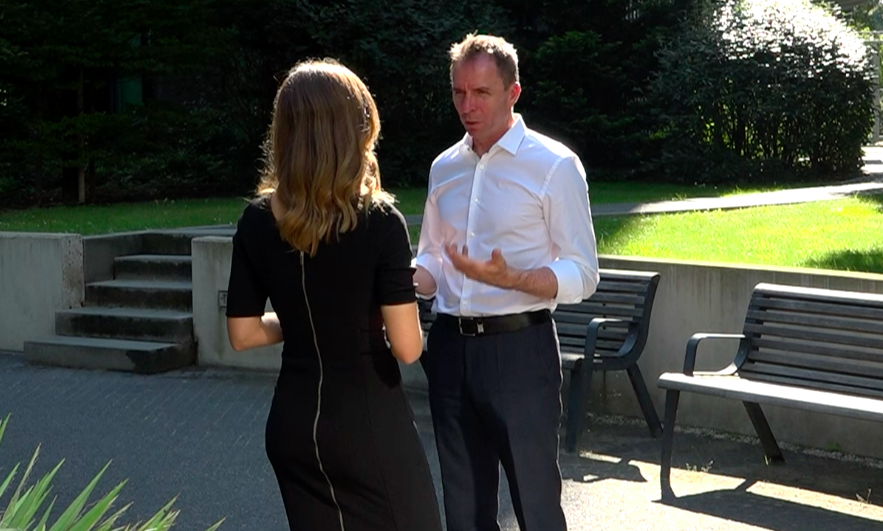Hungary's tough policy to close its borders to foreigners has not slowed the infection rate and Wizz Air boss Jozsef Varadi has said it has been a mistake due to the economic impact.
Foreign citizens have not been able to enter Hungary since 1 September and since then case numbers have been steadily climbing with the country on the cusp of hitting 1,000 new infections in a 24-hour period.
It has also been estimated that a lack of testing means the real numbers are much higher.
Health experts as well as tourism and travel industry figures say shutting Hungary off to the world entirely is not a sustainable approach.
"I think it's a very unfortunate decision because it makes a significant impact on our ability to operate our services," said Wizz Air CEO Varadi.
"Just to give you an example - we operated 10 aeroplanes based in Budapest in August, now we have to take it down to two."

Wizz Air CEO Jozsef Varadi said that the tough measures are a mistake. CGTN
Varadi believes Hungary's blanket border closure is too harsh, and it should be replaced by a unified system across the EU, because currently all countries are imposing different measures.
"There should be a testing standard aligned across all countries," said Varadi.
"At the moment there are lots of testing methodologies that should be unified - a process in place for people to be tested and measured, and on that basis let them move.
"Measures like shutting borders, putting people in quarantine blindly, I don't think it makes any sense at all and goes against basic human rights."
Hungary's hospitality and tourism sector is foundering, with many businesses facing closure with no indication of when tourists will return.
Founder of Budapest Boat Party, Yasmine Georgi, said her business is closed for the foreseeable future, and she is opening a new bar to provide jobs for all her staff.
But she explained that many similar businesses don't have that option.
"Certainly for a lot of people they have lost hope that they'll be able to make it through, if they stick with tourism, so people are closing up their businesses, closing their doors, boarding up and finding something else to do with their time, another way to make money."
Hungary's border closure drew criticism from Brussels, which prefers targeted restrictions on visitors from specific areas.
But EU member states are still trying to agree to a unified approach.
There are a few exceptions to Hungary's border closure - members of the so-called Visegrad 4 are exempt – citizens from Poland, Slovakia and the Czech Republic are free to travel.
Anyone on business, students, people visiting for a sporting or cultural event, weddings or funerals are also exempt.
Health experts say the closure of the country is not a sustainable solution.

Hungary has closed its borders to foreign citizens this month but there hasn't been a drop in COVID-19 cases. CGTN
"The limitation of travel of people is important, and definitely I agree we have to limit it, but closing the borders of Hungary on 1 September was too late," said Budapest health advisor Balazs Rekassy.
"It's not true the virus has been brought in from other countries, by scientific figures - only 11 percent is brought in from overseas."
Instead, Rekassy advises measures like mask-wearing, social distancing and limits on big events.
Currently, the only rule on gatherings in Hungary is a limit of 500 people in any space.
The Hungarian government hasn't indicated how long the border will stay shut, and has said the peak of this second wave may be as far off as January.
(CGTN)
 简体中文
简体中文

